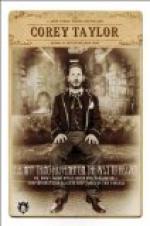“Chicken?” Into his face the child gazed with pitying comprehension of his ignorance, and in her voice was shrill amusement. “Chicken! Did you ever price one? I have, when I’m having kings and queens taking dinner with me in my mind. People don’t have chicken ’cept at Christmas, and sometimes Sundays if there hasn’t been anybody out of work for a long time. Come on. I’ve got a box of sardines. Just think, Father, he wants to buy a chicken!”
With a gay little laugh in which was shrewd knowledge of the unthinkableness of certain indulgences, the child slipped one arm through her father’s and another through Van Landing’s, and with a happy skip led the way down the poorly lighted street. A solid mass of dreary-looking houses, with fronts unrelieved by a distinguishing feature, stretched as far as the eye could see, and when a few blocks had been walked it was with a sense of relief that a corner was turned and Van Landing found himself at the foot of a flight of steps up which the child bounded and beckoned him to follow.
The house was like the others, one of a long row, and dull and dark and dingy, but from its basement came a baby’s wailing, while from the floor above, as the hall was entered, could be heard the rapid click of a sewing-machine. Four flights of steps were mounted; then Carmencita took the key from her father’s pocket and opened the door.
“This is our suite,” she said, and courtesied low. “Please strike a match, if you have one, Mr. Van. This house is very old, and history houses don’t have electric lights. The ghosts wouldn’t like it. Some of my best friends are ghosts. I’ll be back in a minute.”
As she ran into the little hall room adjoining the large room which he saw comprised their “suite,” Van Landing lighted the lamp near the mantel and looked around. In the center was a marble-topped table, and on it a lamp, a work-basket, and several magazines with backs half gone. The floor was bare save for a small and worn rug here and there, and on the sills of the uncurtained windows two hardy geraniums were blooming bravely. A chest of drawers, a few chairs, a shelf of books, a rug-covered cot, a corner cupboard, a wash-stand behind a screen, and a small table near the stove, behind which a box of wood could be seen, completed its furnishings; and still, despite its bareness, there was something in it which was not in the place wherein he lived, and wonderingly he again looked around. Had he found himself in the moon or at the bottom of the Dead Sea it would be hardly less remarkable than finding himself here. Adventures of this sort were entirely out of his experience. As regulated as a piece of machinery his life had become of late, and the routine of office and club and house had been accepted as beyond escape, and the chance meeting of this little creature—
“Oh, my goodness! I forgot to put the kettle on!”




